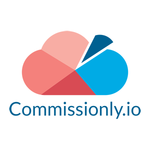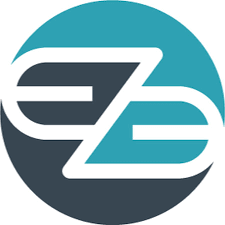Yes, commission software can be accessed from different devices and platforms. Most commission software suppliers provide a web-based platform that is accessible from any device with an internet connection. This means you may access your commission data, reports, and other features using a computer, tablet, or smartphone. Additionally, some commission software has mobile apps for iOS and Android smartphones, letting you to access your data on the go.
List of 20 Best Commission Software
LeadDyno is a affiliate tracking platform that simplifies commission payments and enables businesses to launch successful affiliate programs. It offers an array of tools including automated email campaigns, social media marketing, and in-depth affili...Read More LeadDyno
Commissionly is the commission platform designed to transform your commission management process. Ditch your outdated methods and welcome efficient and streamlined calculations with our highly customizable tool. Improve productivity and accuracy in j...Read More Commissionly
Experience the power of CaptivateIQ is a sales compensation platform, designed to streamline and automate commission management for your team. With real-time analytics and unparalleled flexibility, CaptivateIQ empowers sales teams to drive revenue gr...Read More CaptivateIQ
Loanworks is the top software and outsourcing solution for finance providers in Australia. Our goal is to enhance profitability and streamline efficiency by reducing errors and delays. Through personalized solutions, we offer the ability to automate...Read More Loanworks
INCENTIVES-SPM, a software solution that streamlines commission and incentive management. Utilizing a user-friendly, cloud-based interface, this platform grants immediate access to valuable data, boosting sales operations and driving employee motivat...Read More INCENTIVES-SPM
RPMS is the most comprehensive profit management system specifically designed for independent manufacturers reps. This powerful solution offers complete cloud, desktop, and mobile capabilities for effortless financial management and data processing a...Read More RPMS
Eclipse Commission Management is your ultimate solution for effectively managing commissions and payments across multiple channels. Our innovative software simplifies budgeting, prevents overspending, and offers electronic invoice access. Rest assure...Read More Eclipse Commission Management
QCommission is commission tracking software designed to simplify and automate your sales and commission processes. Featuring a customizable and efficient system, it allows for accurate calculation and tracking of commissions, bonuses, and other incen...Read More QCommission
Xoxoday Compass is a sales gamification tool for your team. Our software revolutionizes sales contests and commission programs, providing game-like features, rewards, and recognition to keep your team motivated and engaged. With comprehensive access...Read More Xoxoday Compass
OneHash CRM solution for small and medium-sized businesses. Our powerful cloud-based platform is specifically designed to support your businesss growth. With its budget-friendly pricing, stability, flexibility, and user-friendly interface, OneHash CR...Read More OneHash CRM
BrokerMint is a back office solution for the Real Estate industry. This innovative software seamlessly integrates with MLS, CRM, and QuickBooks, streamlining your operations and boosting productivity. With easy-to-use features and automation capabili...Read More BrokerMint
Iconixx is a dynamic and cloud-based sales performance management software that simplifies commission plans. Our solution streamlines sales operations, boosts productivity, and increases profit through advanced analytics, compliance features, accurat...Read More Iconixx
NextBroker solution for streamlining your insurance agency management. Our all-in-one platform offers advanced features such as CRM, marketing tools, and commission management that seamlessly integrate with your preferred systems. Customizable to you...Read More NextBroker
Concert Finance is a tool for optimizing financial management. Transform your business with its advanced features of live analytics, automated budgeting, and robust data protection for strategic decision-making. Experience streamlined financial opera...Read More Concert Finance
Qobra is a sales compensation solution, revolutionizing the way companies handle commission calculations, adjustments, and approvals. With its real-time visibility and motivating features, Qobra empowers sales reps to achieve their goals and drive re...Read More Qobra
Flowlu is a business management software that facilitates smooth teamwork among small and medium-sized businesses in various industries including creative, consulting, construction, marketing, and IT. Its user-friendly interface enables efficient col...Read More Flowlu
SmartWinnr solution for empowering your sales team and achieving unparalleled success. Our platform utilizes gamified KPIs to boost motivation and engagement among employees, coupled with AI-driven quizzes and ongoing coaching to enhance product unde...Read More SmartWinnr
Recovee OST to PST Converter solution for converting OST files to PST effortlessly. With our advanced features, your damaged OST mailboxes can now be restored without any data loss. Say farewell to all your worries and smoothly transfer your crucial...Read More Recovee OST to PST Converter
Recovee Outlook PST Repair is solution for fixing damaged PST mailboxes. This advanced tool effortlessly recovers the data and saves it in a new PST format, providing you with a seamless experience. With the ability to save up to 25 emails at a time,...Read More Recovee Outlook PST Repair
Learn More About Commission Software
- What Is Commission Software?
- What Are The Recent Trends In Commission Software?
- Benefits Of Using Commission Software
- Important Factors To Consider While Purchasing Commission Software?
- What Are The Key Features To Look For In Commission Software?
- Why Do Businesses Need Commission Software?
- How Much Time Is Required To Implement Commission Software?
- What Is The Level Of Customization Available In Commission Software?
- Which Industries can benefit the most from Commission Software?
- Conclusion
What Is Commission Software?
Commission software is a digital application that simplifies and automates the process of computing, recording, and managing sales commissions for organizations. This type of software is commonly used by businesses with a sales staff or commission-based personnel, such as real estate firms, insurance companies, and direct sales organizations.
Commission software eliminates the need for manual commission computations, which are time-consuming and error-prone. It also gives transparency for both the sales force and management, ensuring that sales people are paid correctly and on time, while managers gain insight into sales success and payouts. Typically, commission software provides customized compensation schemes based on variables like as sales volume, product type, and individual performance.
It also allows for bonuses, overrides, and other incentives to be integrated into the commission system. In addition to commission calculations, this software frequently includes capabilities like sales data analytics, real-time reporting, and connectivity with other sales and accounting systems. It can also manage more sophisticated cases, such as divided commissions and different payment options.
When choosing commission software for your business, seek for a user-friendly design, adjustable features, and devoted customer service. It is also critical to check that the software fulfills your specific industry and business requirements, as different commission software might cater to different industries or company sizes. Investing in commission software can help your firm improve productivity, reduce errors, and increase sales performance. With the correct software, you can quickly track and manage commissions, encourage your sales team, and, ultimately, increase revenue.
What Are The Recent Trends In Commission Software?
Commission software has become an indispensable tool for organizations of all kinds, simplifying the process of computing and managing sales commissions. In recent years, commission software has undergone significant modifications and developments, making it more efficient, user-friendly, and adaptable for organizations.
Let's take a closer look at some of the latest developments in commission software to help you make an informed purchase decision.
1. Cloud-Based Solutions: One of the most significant trends in commission software is the transition to cloud-based solutions. With organizations adopting remote and hybrid work arrangements, cloud-based software allows for simple access to data and information from anywhere, which is critical for handling commissions for a distributed sales team.
2. Integration With CRM Systems: Another development in commission software is the integration of Customer Relationship Management (CRM) applications. This interface enables a smooth flow of data between sales and commission operations, minimizing human data entry and improving accuracy.
3. Real-Time Reporting And Analytics: The most recent commission software incorporates comprehensive reporting and analytics tools that provide real-time insights into sales performance. This enables organizations to make data-driven decisions and spot trends, thereby optimizing their commission arrangements.
4. Mobile Accessibility: Mobile accessibility is becoming an essential feature for commission software, allowing sales professionals to view commission information on the move via smartphones or tablets. This feature also enables effective communication between sales teams and supervisors, resulting in a faster commission process.
5. Gamification: Many commission software products are now including gamification features to incentivize sales teams and boost engagement. This includes leaderboards, challenges, and performance-based awards, which make the commission process more engaging and enjoyable.
6. Commission Tracking And Forecasting: As technology has advanced, commission software now allows for real-time commission tracking as well as forecasting possible revenues based on existing and future sales. This feature improves sales professionals' understanding of their commission schemes and motivates them to meet their targets.
Benefits Of Using Commission Software
Commission software, also known as sales commission management software, has become a must-have tool for organizations of all kinds in today's competitive market. It is a specialized program used to organize, track, and compute sales commissions for sales teams and individuals. As a buyer, you may be asking what advantages this software might provide for your organization.
Let us take a closer look at the benefits of employing commission software.
1. Streamlines Commission Calculation And Payments: One of the key advantages of employing commission software is that it automates the commission calculation and payment process, saving significant time and resources for your company. This software allows you to create commission rules and formulas, and it will handle all computations precisely and efficiently. This eliminates the need for manual computations, lowering the risk of errors and commission disputes.
2. Increases: Sales Team Motivation and Performance Commission software includes real-time tracking and performance dashboards, allowing sales teams to monitor their success and commission payouts. This encourages healthy competition among team members and drives them to work harder for greater results. As a result, it might lead to higher sales and overall corporate expansion.
3. Increases Transparency And Reduces Disputes: One of the most typical issues of manually handling commissions is a lack of transparency, which can lead to disagreements between sales team members and supervisors. Commission software records all commission computations and payments in the system, ensuring transparency for all parties involved. This can help to prevent disagreements and improve team relations.
4. Delivers Data-Driven Insights: Commission software includes reporting and analytics tools, which provide firms with useful data and insights into their sales performance. These insights can help you identify high-performing salespeople, sales trends, and areas for improvement. With this knowledge, firms may make more educated decisions and develop efficient sales strategies.
5. Integrates With Other Business Tools: Commission software can work with other important business technologies like CRM and accounting software. This eliminates the need for manual data entry while also streamlining the commission management process. It also guarantees that all systems have correct and consistent data, which saves time and reduces errors.
Important Factors To Consider While Purchasing Commission Software?
When it comes to commission software, there are various variables to consider in order to make the best choice for your business. Whether you run a little business or a huge organization, the correct commission software can have a significant impact on your sales and overall earnings. Here are some crucial variables to consider:
1. Usability: The software should have an intuitive interface that is simple to navigate. This ensures that your sales crew can quickly adjust to and use the program efficiently.
2. Integration Capabilities: Ensure that the software integrates with your existing systems, such as CRM, accounting, and payroll software. This will ensure a smooth flow of data and prevent any manual data input errors that could impact commissions.
3. Customization Options: Each organization has its own sales structure and commission systems. The program should include customization possibilities to meet your individual needs. This will prevent confusion or errors in commission computations.
4. Tracking And Reporting Capabilities: The software should allow for real-time tracking and reporting of sales and commissions. This will allow you to track your team's performance and make data-driven decisions.
5. Commission Calculation Accuracy: To assure accuracy, the program should provide a dependable commission calculation method. This is especially relevant for large sales teams with complex commission structures.
6. Security: Because commission software handles sensitive data such as sales numbers and employee information, it is critical to select a software that employs stringent security measures to protect your data from external threats.
7. Scalability: As your company grows, your sales crew and commission structures may change as well. Choose software that is easily adaptable to future needs and expandable.
8. Customer support: Look for a software company that provides good customer service. In the event of a technical issue or concern, it is critical to have a dependable support crew that can assist you swiftly.
9. Cost: The cost of commission software varies, so you must examine your budget as well as the value the program will provide to your firm. Keep in mind that investing in quality software may result in long-term savings.
10. Free Trial/Demo: Finally, before making a purchase, make use of any free trials or demos provided by the program vendor. This will allow you to test the software and determine whether it suits your requirements before committing to a purchase. Finally, while selecting commission software, it is critical to carefully evaluate these important criteria. By keeping these points in mind and conducting extensive research, you can make an informed selection and select software that will help your organization in the long run.
What Are The Key Features To Look For In Commission Software?
When looking for the best commission software for your business, there are a few crucial characteristics to consider. These features will not only simplify your job as a buyer, but will also ensure that the software you select is the best fit for your company's requirements. Here are some important aspects to consider when looking for commission software:
1. Customizable Incentive Structures: Because each firm has its own sales goals and incentive structures, it is critical to select software that allows you to tailor your commission plans accordingly. Look for software that allows you to configure multiple compensation rates for different sales agents, items, or sales territory, as well as the flexibility to adapt these structures as your company's needs change.
2. Automated Calculations: Commission calculations can be complicated and time-consuming, particularly if you have a large sales force. Look for software that automates commission calculations based on sales data, commission rates, and any specific rules or incentives you've set up. This not only saves time, but also ensures that commission distributions are correct and fair.
3. Real-Time Reporting: Real-time reporting is critical for efficiently managing and tracking your sales team's performance. Look for commission software with user-friendly dashboards and reports that provide a full breakdown of commission payouts, sales performance, and other crucial indicators. This will allow you to make more informed judgments and highlight areas for improvement.
4. Integration With Other Systems: Your commission software should work easily with your other business systems, such as CRM and accounting software. This will help to streamline your sales operations, eliminating the need for manual data entry, and ensure that your data is consistent and accurate. Before selecting a commission program, ensure that it is compatible and integrates easily.
5. User-Friendly Interface: Your sales crew will be utilizing the commission program on a daily basis, thus it is critical to have a user-friendly interface. Look for software that is straightforward to use, has an intuitive design, and provides a seamless user experience. This reduces your sales team's learning curve and ensures easier software adoption.
Why Do Businesses Need Commission Software?
Businesses frequently use sales commissions to inspire and incentivize their sales teams. However, monitoring and tracking these commissions may be difficult and time-consuming, particularly for larger firms with several sales reps and complex compensation arrangements. This is where the commission software comes in. Commission software automates the entire commission process, from calculating commissions to managing payouts and reporting.
It removes the need for human computations and minimizes the possibility of errors, making it an invaluable asset for enterprises of all sizes. One of the primary advantages of commission software is its ability to precisely calculate and track commissions for each individual sales agent. It considers a variety of elements, including sales targets, commission rates, and performance measures, to ensure that each representative is adequately compensated for their efforts.
Furthermore, commission software ensures transparency and clarity for both the company and its sales representatives. Sales representatives may see their commission statements and follow their progress toward their goals, while businesses can obtain a complete picture of their sales success and expenses. Furthermore, commission software can be integrated with other systems, such as CRM and accounting software, to streamline the commission process and provide useful insights into sales data.
Using commission software not only saves time and avoids errors, but it also improves sales rep morale and drive. With precise and timely commission payments, sales teams are more likely to remain motivated and work at their peak, resulting in more sales and revenue for the company. In conclusion, commission software is an essential tool for companies that rely on sales commissions.
It allows firms to save time and resources while guaranteeing that sales representatives are properly and accurately compensated, resulting in increased sales and morale. As a result, commission software is an essential tool for any firm trying to optimize the commission process and boost sales effectiveness.
How Much Time Is Required To Implement Commission Software?
When considering adopting commission software for your business, it is critical to understand the time frame required for successful installation. While each company's timetable may differ, it normally takes 2 to 6 weeks to fully implement commission software. The first stage of implementation is obtaining and arranging all relevant data, including sales commission structures, employee information, and sales performance data.
This process can take anywhere from one to two weeks, depending on the size of your organization and the intricacy of your current commission structure. Once all of the essential data has been acquired, the following step is to enter it into the commission software. This can take anywhere from one to three weeks, depending on the extent of customisation and training needed for your individual requirements.
Following the initial setup, the commission software is tested and reviewed to ensure that it calculates commissions and generates reports correctly. This step can take between one and two weeks before the program is ready to go online. The implementation process can take anywhere from 2 to 6 weeks, although this timetable may vary depending on your company's size and complexity. Keep in mind that the time spent on implementation will result in a seamless commission process and increased efficiency in managing commissions for your sales staff.
What Is The Level Of Customization Available In Commission Software?
The level of customisation offered in commission software is critical for addressing your company's specific requirements. To make an informed purchasing selection, a buyer must first grasp the many customization options available with commission software. Here's an overview of the various levels of customization accessible in commission software:
1. compensation Structure Customization: Commission software allows you to tailor your compensation structure to your business strategy and sales process. This can involve varying compensation rates for different products or services, establishing different commission levels based on sales targets, or developing a custom commission structure for specialized sales teams. With this level of customisation, you can connect your compensation plan with your company's objectives and successfully encourage your sales team.
2. User Role Customization: Another critical feature of commission software is user role customization. This allows you to set up distinct roles and permissions for your sales staff, managers, and administrators. You can specify which data and functionalities are available to each role, ensuring data security and control.
3. Commission Calculation Customization: Commission software allows you to specify how commissions are calculated based on your business needs. You can create different commission formulae, add or delete commission components, and control the timing of commission payouts. This freedom in commission calculation customisation enables you to accurately reflect your business strategy and sales procedure.
4. Report Customization: Commission software provides a variety of reporting options for tracking and analyzing your commission data. You can tailor reports to show specific data, filters, and timeframes to acquire useful insights into your sales success. This level of customisation is critical for recognizing sales trends and making data-driven decisions.
5. Interface Customization: The interface of commission program can be tailored to your company's identity and aesthetics. This not only enhances the user experience, but also gives your sales personnel a more professional look and feel, enhancing their motivation and engagement with the product.
Which Industries can benefit the most from Commission Software?
Commission software is a useful business tool that may help organizations of all sizes automate and streamline their commission activities. Its flexible features make it a valuable asset for a wide range of sectors, allowing them to correctly and efficiently handle and track their sales commissions. The real estate business stands to benefit the most from commission software.
Real estate agents and brokers rely largely on commissions as a primary source of revenue, and organizing their payments may be time-consuming and tiresome. Commission software allows them to simply calculate and track their commissions, including split commissions, bonuses, and referrals, saving them time and lowering the possibility of errors.
The retail industry can also gain tremendously from commission software. In retail, sales personnel frequently earn a commission depending on the things they sell, thus an effective and accurate commission system is essential. Commission software allows retail organizations to calculate commission distributions in real time, ensuring that sales representatives earn their due portion on time.
It also provides vital insights into sales performance, allowing firms to identify top-performing reps and reward them appropriately. In the automotive business, where sales commissions are common, commission software can be a game changer. With such a large volume of sales and varied commission arrangements, manually managing commissions can be difficult and error-prone.
Commission software can help to streamline the process, track and manage sales data, and automate commission computations. This ensures that car sales teams receive their commissions on time, boosting motivation and efficiency. Additionally, commission software might be quite valuable to telecoms firms.
Telecommunications firms frequently have complex commission structures that are difficult to handle without the appropriate tools. Commission software can assist these organizations improve their procedures, automate commission computations, and provide a clear picture of compensation distributions. This ensures accuracy while also increasing staff happiness and retention.
Conclusion
In conclusion, commission software provides numerous advantages to organizations of all sizes when it comes to managing sales commissions. Commission software simplifies the commission process by providing a user-friendly interface and powerful features that save firms time and resources. Commission software can boost sales team morale and motivation by automating calculations, creating accurate reports, and offering transparency to reps.
Furthermore, commission software's integration and flexibility allow it to readily adapt to the changing needs of a developing organization. When selecting commission software, analyze the essential features, cost, and support choices to determine the best fit for your company. By investing in commission software, you may streamline your commission process, resulting in improved sales success and growth for your firm.
Commission Software FAQ's
Can Commission Software Be Accessed Across Multiple Devices And Platforms?
Is Commission Software Future-Proof And Adaptable To Emerging Technologies Like Ai, Blockchain or Iot?
Absolutely. Commission software is always improving to keep up with the ever changing technological scene. With the emergence of AI, blockchain, and IoT, commission software is adapting and incorporating these new technologies to expedite procedures and improve commission computations.
It is future-proof and versatile, allowing firms to keep up with technological improvements and industry changes. This makes commission software an invaluable resource for organizations of all sizes, giving them a competitive advantage in the market.
Is There A Free Trial Offered To Assess Commission Software Before Committing?
Yes, many commission software suppliers provide a free trial period of 14 to 30 days. This allows potential clients to thoroughly evaluate the software's features and functionalities before making a commitment. During the trial, users can try out various compensation schemes, track sales, and generate reports to see if the software satisfies their requirements. We highly encourage taking advantage of the free trial to confirm that the software is a good fit for your company.
Does Commission Software Offer Data Security Features And Meet Regulatory Compliance Standards?
Yes, most commission software includes data security protections and adheres to regulatory compliance norms. This includes safeguards including data encryption, access controls, and regular backups to maintain the security and confidentiality of sensitive commission data. Furthermore, many commission software providers are subjected to frequent audits and must comply with industry-specific rules, such as those governing banking or healthcare, to guarantee that they satisfy the essential standards for processing commission data.
Can Commission Software Integrate Seamlessly With Existing Tools And Platforms?
Yes, commission software is meant to work easily alongside existing tools and platforms. These systems are designed to be compatible with a wide range of tools, including CRMs, accounting software, and payment gateways. This integration enables more streamlined and effective commission tracking and payment processes. Make sure to verify with the software supplier for a comprehensive list of integration options.






















